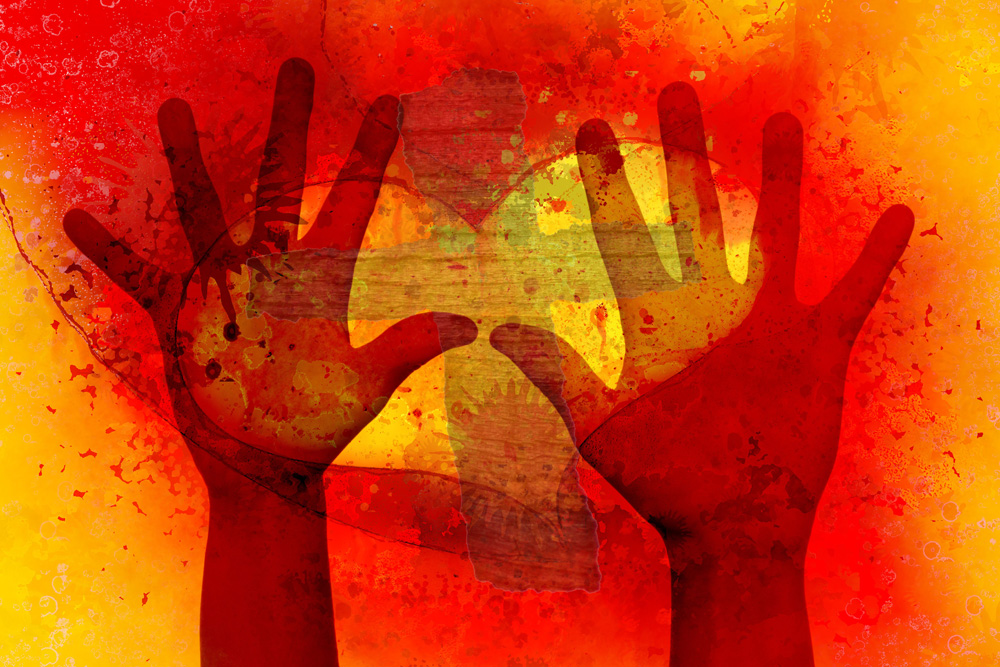
Last week I planned to visit my Mum. She lives on her own so I try to see her regularly. As I was about to leave, I thought it would be good to take her out to lunch rather than just go and see her at home. She would appreciate getting out of her four walls. So I called her and told her that we would go out to lunch if that was ok with her. She was very happy.
As soon as I hung up the phone, I felt a surge of happiness. I felt good because I knew I had done something good.
There is a common belief among too many Christian counselors that you can’t love others until you love yourself. The verse that is often used to back this up is Mark chapter 12, verse 31: love your neighbour as you love yourself.
The problem with the idea that you can’t love others until you love yourself is that, like most heresies, it is partly true. We will have a healthier love of others if we have a healthy love of self, but the emphasis in Jesus’ words is on loving others and God. It is about giving.
It is really about the Golden Rule - ‘do unto others as you would have them do unto you’. Think about what you would most want that person to do for you if you were in their position, and do it for them. Jesus’ point was that we are to think of others before ourselves.
The church in our culture has fallen for the cult of individualism and it is destroying our witness. For Jesus and the early church, the emphasis was always on others. One of the reasons the early church grew so quickly was because they were healthily obsessed with following Christ regardless of what it cost them. They faced death every day at the hands of Rome, but still they took in the sick, the disabled and the outcast as Jesus called them to. All that mattered to them was following Christ. I sometimes wonder if our obsession with self-love is a result of our individualistic culture which has spawned an individualistic gospel.
It is only when we ask the Holy Spirit to help us be more Christlike and as we live this out that we become closer to God. And it is through this that we slowly find ourselves developing a healthy sense of self-worth. Jesus said, in Mark chapter 8, verses 34-35, “if any want to become my followers, let them deny themselves and take up their cross and follow me”. It is in doing what is right that we come to love ourselves in the way that Jesus properly wants us to, because it is then, as we seek to follow Him, that we become truly close to God.
Franciscan priest, Richard Rohr, puts it succinctly, as usual:
“We must learn to move beyond ourselves, to set limits on our own needs and somehow to meet other peoples’ needs. We actually need to do this for our own good! That’s why Jesus commanded us to love—to get us started. So love is not a feeling, but a decision, yet a decision that increases our inner freedom each time we do it. You will know this only after you act on love.
Jesus didn’t say when you get healed, love; when you grow up, love; when you get it together and have dealt with all your wounds, then love. No, the commandment for all of us is quite simply, “Love!” Once we know it is not a feeling, but a grace empowered decision, we can all do it. And each time it is a growth in freedom—and flow.”
The point that Rohr makes is that love is a grace-empowered decision. We are only able to love because of God working in us. We love because He first loved us. The Gospel is about self-denial, not self-fulfilment.
Life is found in the service of others. The founders of Alcoholics Anonymous realised this. They knew that the selfishness of their addiction was wrecking their lives and the lives of their loved ones. So they dedicated themselves to the service of others. AA came out of Christian principles. One of their quotes is “If you want self-esteem, do esteemable acts”. For addicts in recovery, it is their acts of service that keep them sober and clean. They know they need to surrender their lives to a Higher Power and find life by giving to others. The irony is that it is in the giving that they are fulfilled. We don’t think our way into new ways of acting; we act our way into new ways of thinking.
The life of following Christ and living the abundant life he promises is about action, and it comes through the wonderful realisation that we are loved by the God of the universe. We don’t need to do anything to feel loved. Our identity comes from knowing we are already loved and then loving others out of that freedom. We love because he first loved us. It is in the giving of love to others that we find identity and the fulfilment that we are constantly searching for.
.jpg) Nils von Kalm is from Melbourne, Australia and has a passion for showing how the Gospel is relevant to life in the 21st century. He can be found on Facebook at https://www.facebook.com/nils.vonkalm
Nils von Kalm is from Melbourne, Australia and has a passion for showing how the Gospel is relevant to life in the 21st century. He can be found on Facebook at https://www.facebook.com/nils.vonkalm
Nils von Kalm’s previous articles may be viewed at